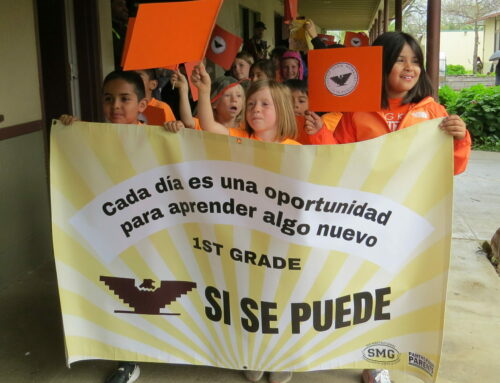Published in the May 13-26, 2015 issue of Morgan Hill Life
By Marty Cheek

An upcoming summer workshop series for young people aims to make Shakespeare fun through comedy improv performances. The classes will be held at Gavilan College’s Morgan Hill site. To register, visit www.gavilan.edu or call the college at (408) 848-4800.
John Lawton-Haehl, the theater director at Gavilan College, and I were having lunch at Ladera Grill about six months back and in our discussion over sandwiches we hatched a diabolical plot to change the way Shakespeare is taught to kids. Our experiment in education, if it turns out truly that all’s well that ends well, will result in about 30 young people in Morgan Hill learning to love Shakespeare — and they in turn, through a comedy improv performance, will brainwash other children (and maybe even adults) that Shakespeare is actually a lot of fun.
It’s amazing how many Americans are turned off from ever watching Shakespeare performed on stage. A lot of this attitude has to do with the way the most brilliant writer of the English language is taught. Many high school teachers, if they’ll honestly admit it, actually hate teaching Shakespeare. My freshman year high school teacher readily admitted to the class that the Bard bored him. I suspect many educators hate Shakespeare because they were introduced to his plays by teachers who also loathed him. It’s too bad so many teachers lack enthusiasm for Shakespeare because his writings hold a wealth of wisdom — and they’re really entertaining.
At that lunch meeting in a Ladera booth, Lawton-Haehl and I tried to come up with a solution to the challenge of teaching Shakespeare so that kids will actually develop a life-long love for his plays. The key is comedy, we both realized. Everyone loves to laugh. Shakespeare was the king of comic genius, and that’s what makes his plays so accessible for people willing to give him a chance. From the text of his plays, it’s obvious that Shakespeare enjoyed a quick wit and loved snappy wordplay — and he delivered his humor not just in the comedies he wrote but also in his history and tragedy plays. “Hamlet” would be an incredibly tedious downer of a psychological thriller if Shakespeare didn’t add comic characters such as Guildenstern, Rosencranz and the grave digger to let in a little levity.
So how do we incorporate comedy in the teaching of Shakespeare? Lawton-Haehl and I realized that comedy improv might be a “Trojan horse” tool to get young minds to assimilate a love for learning Shakespeare. And that’s how the idea for a Gavilan College “Summer Bridge” workshop came about combining learning Shakespeare and comedy improv skills.
In the summer class, students will learn both short form and long form improvisation. While the short form (think of the TV show “Whose Line is It Anyway?”) is suited to quick comedy sketches, longer form improvisation is good for teaching students developing themes and character relationships in Shakespeare, quite often resulting in a performance that isn’t funny, but has emotional depth within the piece.
Students will learn to perform improvisational comedy at the Gavilan workshop. They will also learn about Shakespeare’s life, the world of the early London stage, and the rich language of his plays. The ultimate goal is for the students to publicly perform a comedy improv show incorporating many of the characters, plot-line, dialogue, and other elements of Shakespeare. They will subtly plant a seed in the minds of the audience that this Shakespearean stuff ain’t high-brow but actually a lot of fun.
One of the problems with the attitude of Americans toward Shakespeare comes as a result of academia putting him on the ivory pedestal, Lawton-Haehl said.
“We think of him as a great master and poet within the realms of ‘high art,’” he said. “The truth is that Shakespeare was a popular entertainer and theater shareholder who wrote for the masses. He wanted to sell tickets to make money. He borrowed freely from other authors and even would throw a live bear into the plot to enliven the action of the drama.”
Lawton-Haehl is the perfect professor for bridging Shakespeare and students. He studied for five years at American Conservatory Threatre’s Young Conservatory. And as a junior at U.C. Berkeley, he studied theater at the Centre for Medieval & Renaissance Studies in Oxford.
Part of Lawton-Haehl’s mission at Gavilan is to bring Shakespeare down from the highfalutin realms of study and have students connect with his characters, relationships and human situations with which we can all identify. By using improvisation to make the learning and creative process more enjoyable, he hopes to make Shakespeare an author for everyone.
“It’s a pity that so many people are afraid of Shakespeare,” he said. “His plays, poems and sonnets contain so many truths about humanity, relationships and life that a lot can still be learned from him. His work was meant to be heard, never read as literature. That’s why speaking and performing it adds so much to our understanding of his cannon. I believe that Shakespeare would approve of our class.”






